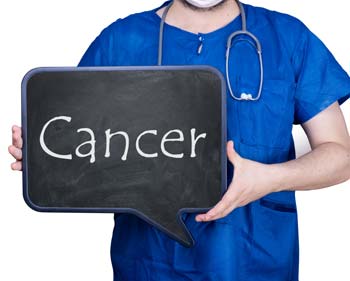
Without a doubt, ‘Cancer’ is the most terrifying word you can hear from your doctor. What we know about cancer is that there is no vaccination and no antibiotic that will cure it. And so, when you hear the diagnosis, you think there is no hope.
In 2017, in the US, there will be an estimated number of 1,7 million new cancer cases and an estimated number of 0.7 Million cancer deaths. That’s approximately 4600 new cases a day and 1700 deaths a day. Unfortunately, numbers aren’t on our side.
It’s hard to not be scared looking at the cancer statistics just in the United States. Even worse, as we know, cancer doesn’t discriminate. It has deadly affects everywhere, for everyone. So, cancer prevention should be a number one goal for all of us! Sooner you get checked, sooner you’ll start the treatment and more effective it will be. That’s a no brainer, but once you are diagnosed, several questions come up. Here are some of them:
Is Chemotherapy good or bad?
Since the 1950s, chemotherapy has been used to kill the cancer cells, and therefore, has been the most tested and effective way to fight the disease. However, chemotherapy has some serious side effects and it may not be for everybody at every stage of cancer.
Those who advocate for chemotherapy believe that the pros of getting the treatment outweigh the cons and so, if the chance of survival is bigger, it’s worth going for. A recent study, published in the esteemed New England Journal of Medicine, suggests that some women may be undergoing chemotherapy treatment even if it doesn’t boost their odds of survival. Researchers have found that women in early stages of cancer who seemed to be at low risk of recurrence could have avoided the physical and emotional stress and all the side-effects of chemotherapy without compromising their survival chances.
What’s an alternative?
If we are talking about the prevention, cancer-preventing lifestyle choices can be the key. Those choices have a lot to do with our sleep routine, food we eat, stress level and the overall immune system of our bodies.
If you are already diagnosed with cancer, taking a holistic perspective into consideration may be worth a try.
Holistic approach suggests that combining both, traditional and alternative medicine resources may maximize the efficiency of the treatment in fighting cancer. What are the alternative ways you ask?
Addressing the root cause of cancer should provide valuable insights on the disease and therefore be taken seriously. Psychological and lifestyle factors contributing to the disease and its progress should be identified and treated as well.
Here are some suggestions for cancer patients:
Check your gut and get a good internal exam.
Internal exam is essential to identify what the root of the problem is. Moreover, 70 % of our immune system is located in our gut. So, in any case, checking what happened to our gut to allow the disease or condition in is worth it. That way you can make sure that your gut absorbs the supplements, minerals or vitamins, whatever it is that you take.
Get Active
Don’t lose hope and don’t stop moving! If you are physically able to exercise, go for it. First, exercising reduces stress. Secondly, it builds muscles and makes you generally stronger. Whether you like walking around, running, biking, swimming or taking fitness classes, don’t stop! Keep the good work and you’ll be able to focus on something else rather than cancer.
Get the supplements that work for you
Getting the right supplements and making sure they work for you can be tricky. Consult your doctor as you might need the support of Vitamin D Synergy, Vitamin C Buffered Powder, Detox, Selenium, Probiotic Synergy Spheres, and/or Detox products to complement your traditional and other alternative medicine protocols.
Last, but not least, don’t give up! Positive mind is directly correlated to physical well-being. So get all the help you can from psychologists, doctors and your loved ones to keep the positive attitude.
http://www.cancer.org/acs/groups/cid/documents/webcontent/003321-pdf.pdf
http://www.cancer.org/acs/groups/content/@research/documents/document/acspc-047079.pdf

